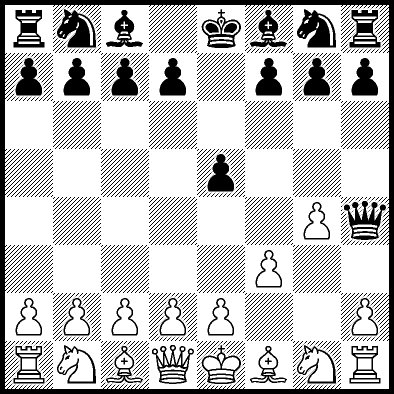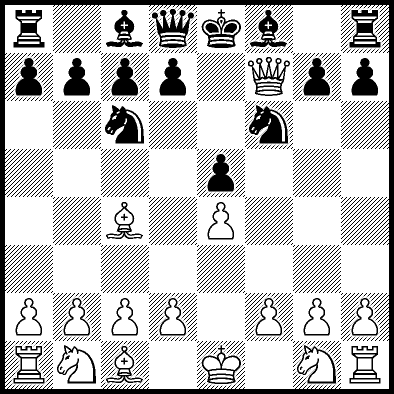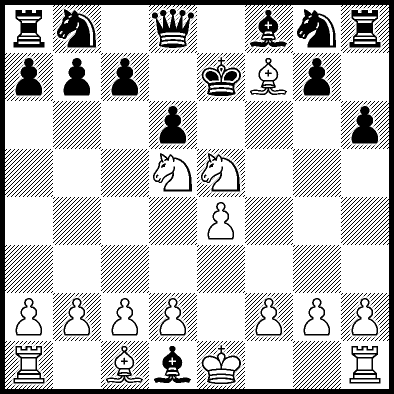

The shortest possible checkmate, and surprisingly it is Black that delivers the mate (perhaps Black has a forced win from the starting position!).
Of course White would never fall into such a mate, but the idea of opening up the e1-h4 diagonal (or the e8-h5 diagonal for Black) to a lethal queen check comes up in several openings, including the King's Gambit, Damiano's Defence, and the English Defence. Don't let it happen to you, and watch for opportunities that your opponent gives you.
This move is objectively bad since the queen will be open to attack giving Black free developing moves. However, it does attack Black's e5 pawn which must be defended.
2. ... Nc6
An excellent way of defending the pawn. In the opening, take every opportunity to develop pieces.
3. Bc4 Nf6?
A bad blunder. Black attempts to drive away the White queen, but unfortunately has overlooked the response
3. Qxf7#

This one comes up all the time in junior competitions. The only error made by Black was playing 3. ... Nf6 instead of defending the threatened checkmate. Instead Black should play 3. ... Qf6, a developing move that foils White's plan. In fact, since it's usually only weak players who attempt Scholar's mate (because it misplaces the queen), Black can often follow up with 4. ... Bc5 and 5. ... Qxf2# inflicting a Scholar's mate of his own!
This is called Philidor's Defence, and should be treated with caution because it locks up Black's king-side bishop.
3. Bc4 Bg4
4. Nc3 h6?
Just look at the position: Black has developed one piece to White's three, and is now about to pay the price.
5. Nxe5! Bxd1?
Black should have taken the knight with 5. ... de when after 6. Qxg4 he only loses a pawn.
6. Bxf7+ Ke7
7. Nd5#

A beautiful mate with three minor pieces surrounding the enemy king. Black got mated because he didn't develop his pieces in the opening (particularly his knights), and then got greedy when presented with an opportunity to take White's queen.